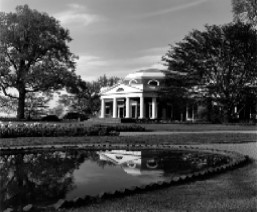- Free Article: No
- Contents Category: Commentary
- Review Article: No
- Article Title: Diary
- Online Only: No
- Custom Highlight Text:
September 8. Feeling like I have been away too long, I visit Warsaw to meet up with Zygmunt Bauman’s people; Budapest to catch up with Agnes Heller and her son, Yuri; Prague, just before the deluge; Leeds, to work further with Bauman; Chicago, for the American Sociological Association convention; New Haven; and Boston, where my sanity is restored, my daughter having arrived to stay with me in Cambridge. Today we are upstate New York, on the Hudson; yesterday we were in downtown Manhattan, where the aura of September 11 is strong, and more than a bit spooky. We walked down Broadway, stayed in Greenwich Village, and decided to visit the site of Ground Zero another time, if ever. The whole of America is flagged – a weird show of strength, defiance, patriotism and anxiety. The shops, in particular, all seem to bear compulsory flags on the windows and doors. You get the sense that there is not much room to move here.
September 11. The early morning telecasts are sad and moving. We attend the ecumenical commemorative service in Harvard Yard. It is poignant, yet somehow abstract after all the concrete detail on TV. On our way to the Square to catch a cab to the airport – today we fly to Charlottesville – a woman dressed like a girl scout offers us patriotic cookies. Logan Airport is about as busy as Benalla on a Sunday morning. After all, this is where those two planes departed from a year ago. Security is heavy, though the danger we face would probably be greater on September 12. As for us, I guess we have been through our anxiety already in the small hours. Perhaps it only goes to show how protected we are. The connecting flight through Pittsburgh is quiet, but smooth. Things in Pittsburgh International seem more like normal. The last leg of our flight, in a little plane, a turbo prop, is fine, yet it is a relief to set down in Virginia, not least because of a deep residual fear that I have taken an unjustifiable risk with the life of my daughter in order to fulfil my work obligations. Tomorrow I talk to the Sociology Department at the University of Virginia on the work of Bauman, and my rational sense of safety or control in this situation does not stretch quite as far as I would like it to. Ours is the age of mounting uncertainty.
 Thomas Jefferson's estate, Monticello
Thomas Jefferson's estate, Monticello
September 13. My paper went well: fine folks all round; great discussion. This afternoon we visit Monticello, and wonder about where all this began, the American experience, what it has achieved, at whose cost, and what might come next. For Thomas Jefferson’s home, and the beautiful, even sacred, site that is his university are foundational of all this: freedom, slavery, achievement and exclusion, nature and artifice all thrown together. Monticello is a beautiful part of the world, though its shadows are heavy.
But even as you appreciate it, you have to wonder about us, as moderns, and about the USA as the model of modernity. My sense is that we, in a place such as Australia, are ambivalent about the USA because we are ambivalent about modernity, about ourselves. This is precisely why anti-Americanism or pro-Americanism alone will not do. Are the Americans us? In one clear sense, no; in another, yes: on the street or here in Virginia; in the woods, as in Australia; in the bush. If they are not us, or we them, then they are our others, and we should care for them as others, and for those others elsewhere whose life chances are so much more modest.
American civilisation is a potlatch culture, a culture based not only on conspicuous consumption, but also on an economy of waste. It is a society of excess, but so is ours. America is also, discernibly, a split polity, again like ours: two nations, or more. It is also a liberal society, living with a reactionary government, feeling cornered and embarrassed by its leadership, as well as fearful or, alternatively, proud of it. America is a culture of extremes; we should know better than to judge it by its worst alone. If we could begin to identify its real strengths, or our own, this might be a way to clarify our norms and values, and to argue more forcefully for a world where freedom and dignity are our goals.


Comments powered by CComment